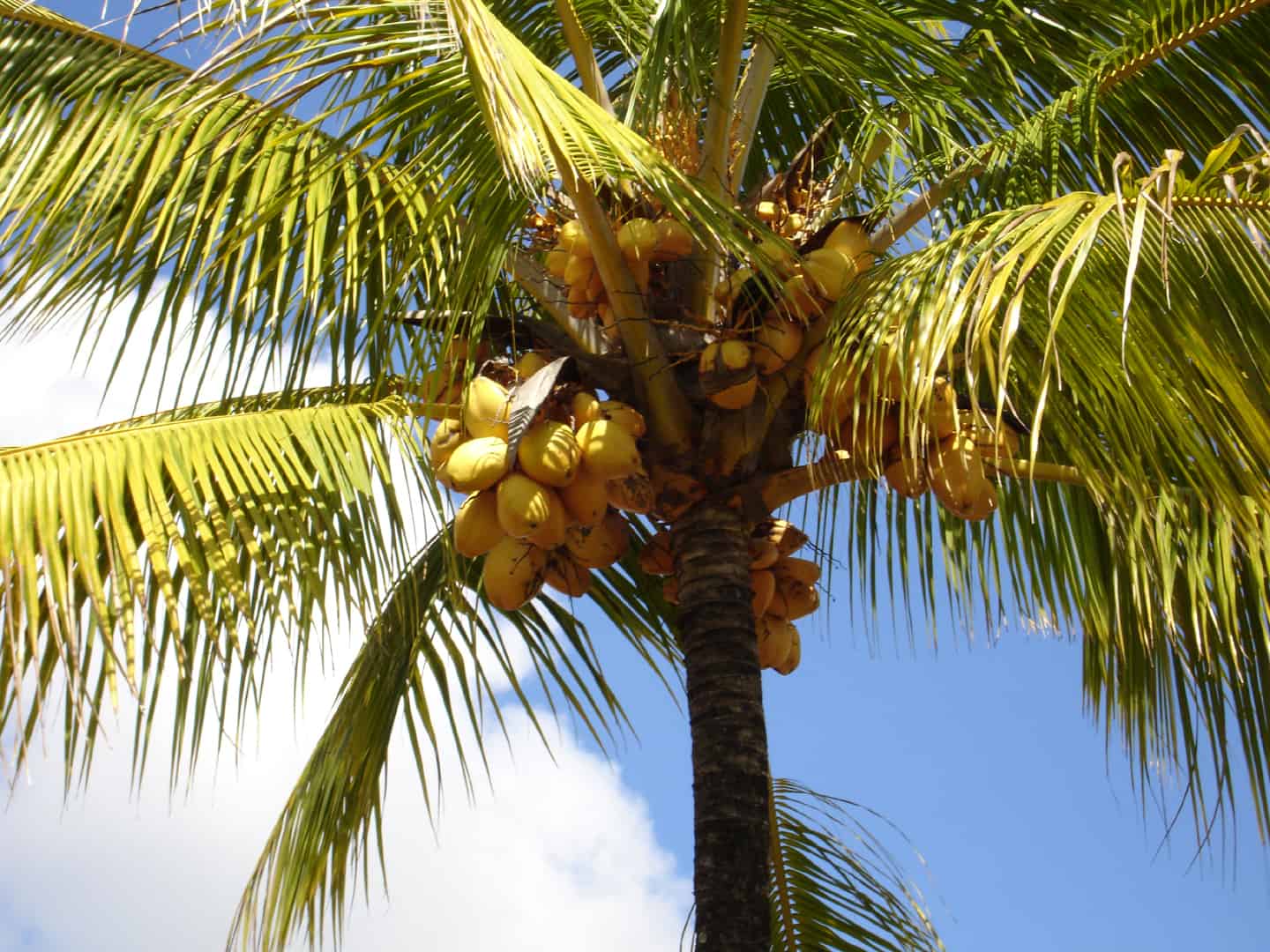Coconuts palms are one of nature’s greatest gifts to the planet. Perhaps it could earn the title of single most useful palm in the tropics, yet here in Costa Rica it is used infrequently at best. In most other tropical countries, the coconut palm is widely planted for many of life’s essentials it provides.
The coconut is the world’s largest seed. Its outer husk can be used for mats and insulation; the palm fronds can be used for thatching roofs and making baskets, hats and mats; and the trunk can be used for construction. Its fibrous wood is impervious to insects.
And then there’s the coconut itself: considered one of the most treasured foods of all times, the coconut’s water, meat, cream and oil each provide many health benefits.
Coconut water is completely pure and is nearly identical to human blood, with the highest concentration of electrolytes found in nature. This makes it an excellent natural drink and a great substitute for artificial colas and beverages. Freshly grated coconut is an excellent food source for fiber, carbohydrates, and raw oil. It can be added to cereals and salads, or blended to create coconut milk, which is great substitute for cow’s milk. This cream is also a valuable aid for rejuvenating dry and aging skin. Grated dry coconut is also another healthy way to add coconut to your diet.
Over the past few decades, studies have shown that coconut oil is superior to most oils on the market.
Coconut oil contains a lot of medium chain triglycerides, which are metabolized differently than long-chain saturated fats and can have therapeutic effects for your health. Here a some of the benefits: coconut oil lowers cholesterol, wards off wrinkles, stabilizes glucose levels, fights off microbes, regulates hormones, increases thyroid production, helps to lose weight, improves metabolism, fights infections, improves memory and heals gum infections.
In Costa Rica, three varieties are available in leading nurseries: the tall Jamaicans with large meaty cocos and the smaller green and gold Malaysians, which are esteemed for their agua de pipa or coconut water. Selected seedling coconuts palms can be found in local nurseries around the country in various sizes.
Coconuts grow best in coastal regions up to about 1000 meters in elevation depending on microclimate conditions. They can planted directly in permanent sites where they have plenty of space to grow in full sunlight. They also grow best in sandy soils, so it’s best to add sand to heavy clay soils.
Locals say that adding a small amount of salt around these palms increases their growth. Adding small amounts of limestone, ashes and rock dust around the base of the palm each year also boosts their growth and production.
Coco palms can produce the first crop in five to seven years, and there’s nothing more rewarding than opening your first coconuts to enjoy the refreshing agua de pipa.
Until next time – happy gardening in Costa Rica.
Read more of Ed Bernhardt’s monthly Home Gardening columns here.
For more information on tropical gardening – naturally – visit Ed at http://thenewdawncenter.info/blog.html or contact him at thenewdawncenter@yahoo.com.







